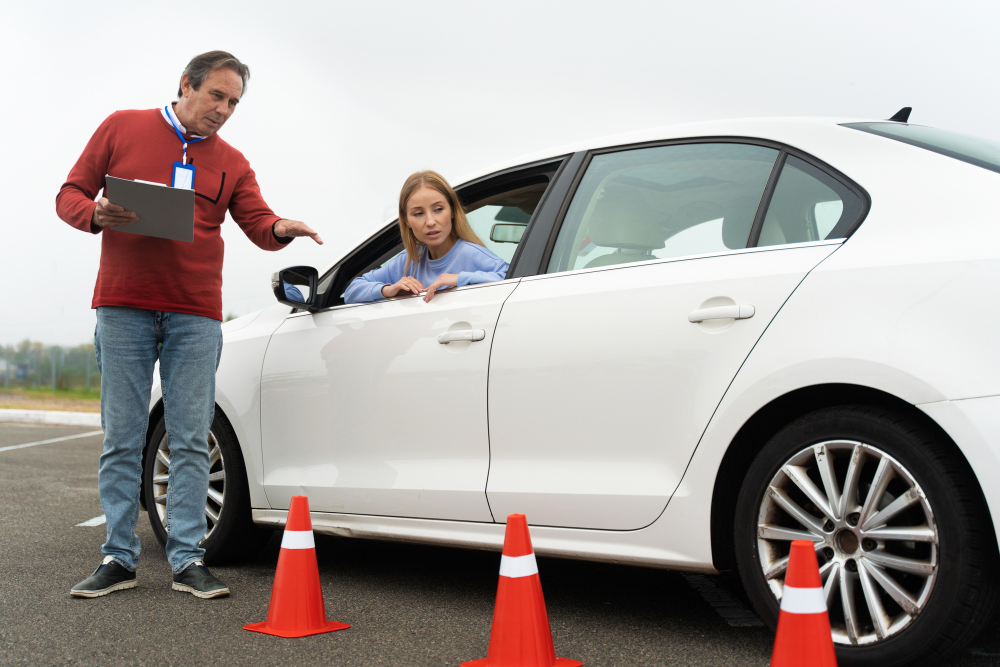Acquiring the ability to drive is a thrilling achievement that offers autonomy and accountability. It might be intimidating for novices to take the wheel for the first time. The procedure requires patience and direction as you master vehicle controls, comprehend traffic laws, and cultivate safe driving practices. Driving lessons are intended to close this gap by providing students with the information and self-assurance they need to become skilled drivers. The process might go more smoothly and be less daunting if you know what to anticipate from these teachings.
Getting Started With The Fundamentals
The goal of the initial driving lessons is to make students feel at ease behind the wheel. Instructors usually lead students through vehicle familiarisation after a short introduction. This includes being familiar with the controls for the dashboard, steering, pedals, mirrors, and seats. Before departing, a competent educator makes sure students comprehend safety precautions, including wearing seatbelts and indicators. In order to practice moving off, stopping, and steering without the stress of crowded roadways, beginners often begin in places with less traffic and calmer conditions. A reliable driving school Ryde can provide organised sessions tailored to your requirements if you’re looking for expert advice.
Increasing Self-Belief In Actual Traffic
Lessons start to include real-world driving scenarios after the fundamentals have been mastered. Teachers lead students out into city streets, highways, and busier roadways. This phase is essential for developing self-assurance in many settings. In addition to navigating traffic signals and handling lane changes, students also learn how to react to unforeseen situations like unexpected stops or merging traffic. Wet weather, driving at night, and other difficult situations could also be covered in the lessons. Teachers make sure pupils are ready for the reality of daily driving by introducing them to these situations gradually.
Developing Your Parking And Manoeuvre Skills
Parking and controlled movements are also important parts of driving instruction. This level is sometimes difficult for beginners, but with repetition, it becomes instinctive. In addition to teaching three-point turns and hill starts, instructors also teach parallel, angle, and reverse parking. These abilities are necessary for daily driving as well as for passing the driving exam. Being able to park effectively and securely lowers stress levels and guarantees that drivers can manoeuvre through confined spaces with confidence.
Getting Ready For The Driving Exam
In addition to teaching lifelong safe driving practices, driving classes are created with the driving exam in mind. To aid students in both mental and practical preparation, instructors often mimic exam situations. Mock exams draw attention to areas that need work, such as managing junctions, mirror checks, and observation abilities. Before the test, students may fix their errors thanks to the helpful criticism they get. Test-day anxiety is decreased, and confidence is increased via preparation.
Beyond The Licence: Long-Term Advantages
The advantages of driving lessons extend well beyond the fact that many students see them as a means of obtaining their licence. Lessons impart patience, accountability, and consideration for other drivers. Professionally trained drivers are more likely to value safety and are less likely to form negative behaviours. These behaviours lower hazards and foster a culture of careful driving long after the driving test is completed.
Selecting The Ideal Teacher
The teacher has a major influence on the quality of driving instruction. How quickly and confidently a student advances may be greatly influenced by a teacher who is knowledgeable, understanding, and encouraging. It’s crucial to search for certified instructors with good ratings and adaptable teaching methods while selecting a driving school. When students and teachers get along well, a relaxed atmosphere is created where students may ask questions and make errors without worrying about being judged. For learning to be successful, this trust is necessary.
Conclusion
Driving lessons are a thorough educational process that gives novices the abilities and self-assurance to drive on their own. They are more than simply practice sessions. Each step builds on the one before it, guaranteeing that learners advance steadily from simple controls to intricate road scenarios. Even though the process may seem overwhelming at first, organised instruction from a reputable driving school is crucial. Every novice may anticipate the day when they can drive with confidence on their own with the correct encouragement, practice, and patience.
